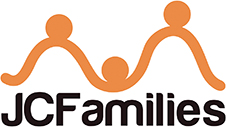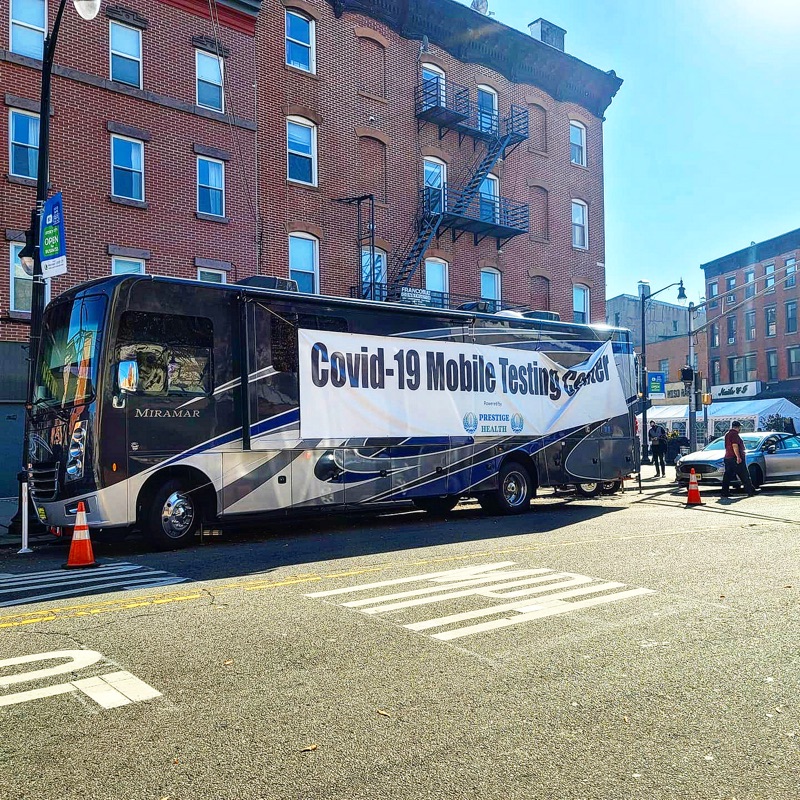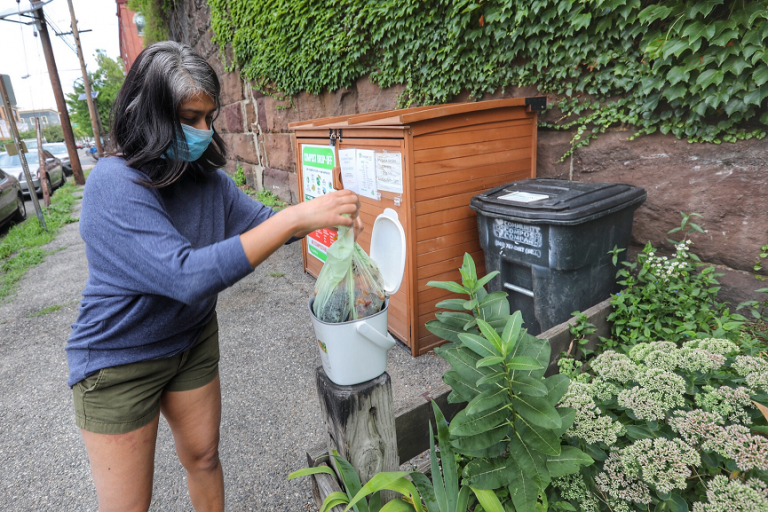Coronavirus COVID-19 Updates for Jersey City Residents
Attention Families! We want to update you on whatever information we have about the COVID-19 in Jersey City that can be helpful.
City officials have released a COVID-19 dashboard for residents of Jersey City. The dashboard tracks and compares Hudson County, Jersey City, and New York City numbers. —JC Dashboard
Where To Get Tested In Jersey City?
Coronavirus cases are still on the rise in Jersey City and with the increase, so have the testing sites. Some of these sites are mobile, and some of them are at specific locations that may require appointments that have limited, so make sure to call ahead and check whichever option you pick.
The @NJDOH is sponsoring No-Cost Saliva Test Kits. Residents may obtain them by visiting this link: https://bit.ly/3sqBqgB.
Here is the FULL GUIDE for where to get tested.
Where To Get Vaccinated/Boostered?
The CDC strongly advocates receiving any vaccine rather than being unvaccinated. It’s your choice which vaccine to receive. Still, based on the latest evidence on vaccine effectiveness, safety, rare adverse events, and consideration of the U.S. vaccine supply, the CDC recommends the mRNA COVID-19 vaccine (Moderna or Pfizer) over the Johnson & Johnson’s COVID-19 vaccine.
Here is the FULL GUIDE of getting the vaccine and booster.
Who is eligible for a COVID-19 vaccine in New Jersey?
- All adults (18 and older) are eligible for the two-dose Pfizer, two-dose Moderna, or one-dose Johnson & Johnson vaccines.
- All adolescents ages 12 through 17 are eligible for the two-dose Pfizer vaccine.
- Children ages 5 through 11 are eligible for the pediatric two-dose Pfizer vaccine.
- Everyone 16 and older are eligible for a booster shot if it has been at least two months since their one-dose Johnson & Johnson shot or at least six months after completing their two-dose Pfizer or Moderna vaccine series.
- People who are moderate to severely immune-compromised are eligible for a third dose of the Pfizer or Moderna vaccines.
Vaccines are available to all New Jerseyans, regardless of immigration or insurance status.
What Is COVID-19?
COVID-19 is a disease caused by a virus called SARS-CoV-2. Most people with COVID-19 have mild symptoms, but some can become severely ill. However, most people with COVID-19 get better within weeks of illness; some experience post-COVID conditions. Older people with certain underlying medical conditions are more likely to get severely ill from COVID-19. Vaccines against COVID-19 are safe and effective.
How Can You Protect Yourself From Covid-19?
Get Vaccinated
- Authorized COVID-19 vaccines can help protect you from COVID-19.
- It would be best to get a COVID-19 vaccine as soon as possible.
- Once you are fully vaccinated, you may be able to start doing some things that you had stopped doing because of the pandemic.
Wear a mask
- Everyone 2 years or older who is not fully vaccinated should wear a mask in indoor public places.
- In general, you do not need to wear a mask in outdoor settings.
- In areas with high numbers of COVID-19 cases, consider wearing a mask in crowded outdoor settings and for activities with close contact with others who are not fully vaccinated.
- People who have a condition or are taking medications that weaken their immune system may not be fully protected even if they are fully vaccinated. Therefore, they should continue to take all precautions recommended for unvaccinated people, including wearing a well-fitted mask until advised otherwise by their healthcare provider.
- If you are fully vaccinated, to maximize protection and prevent possibly spreading COVID-19 to others, wear a mask indoors in public if you are in an area of substantial or high transmission.
Wearing a mask over your nose and mouth is required on planes, buses, trains, and other forms of public transportation traveling into, within, or out of the United States and while indoors at U.S. transportation hubs such as airports and stations.
Stay 6 feet away from others.
- Inside your home
- Avoid close contact with people who are sick.
- If possible, maintain 6 feet between the sick person and other household members.
- Outside your home
- Remember that some people without symptoms may be able to spread the virus.
- Stay at least 6 feet (about two arm lengths) from other people, especially if you are at higher risk of getting very sick.
Avoid crowds and poorly ventilated spaces.
- Being in crowded places like restaurants, bars, fitness centers, or movie theaters puts you at higher risk for COVID-19.
- Avoid indoor spaces that do not offer fresh air from the outdoors as much as possible.
- If possible, if indoors, bring in fresh air by opening windows and doors.
Test to prevent spread to others
- Testing can give you information about your risk of spreading COVID-19.
- You can choose from many different types of tests.
- Regardless of the test type you select, a positive test result means that you have an infection and should isolate and inform your close contacts to avoid spreading the disease to others.
- Over-the-counter self-tests can be used at home or anywhere, are easy to use, and produce rapid results. In addition, anyone can use self-tests, regardless of vaccination status or whether they have symptoms or not.
- Consider using a self-test before joining indoor gatherings with others, not in your household.
- A positive self-test result means that you have an infection and avoid indoor gatherings to reduce the risk of spreading the disease to someone else.
- A negative self-test result means that you may not have an infection.
- Ask your healthcare provider if you need help interpreting your test results.
Wash your hands often.
- Wash your hands often with soap and water for at least 20 seconds, especially after you have been in a public place or after blowing your nose, coughing, or sneezing.
- If soap and water are not readily available, use a hand sanitizer that contains at least 60% alcohol. Cover all surfaces of your hands and rub them together until they feel dry.
- Avoid touching your eyes, nose, and mouth with unwashed hands.
Cover coughs and sneezes
- If you are wearing a mask: You can cough or sneeze into your mask. So put on a new, clean mask as soon as possible and wash your hands.
- If you are not wearing a mask:
- Always cover your mouth and nose with a tissue when you cough or sneeze, or use the inside of your elbow and do not spit.
- Throw used tissues in the trash.
- Immediately wash your hands with soap and water for at least 20 seconds. If soap and water are not readily available, clean your hands with a hand sanitizer that contains at least 60% alcohol.
Clean and disinfect
- Clean high-touch surfaces regularly or as needed and after you have visitors in your home. This includes tables, doorknobs, light switches, countertops, handles, desks, phones, keyboards, toilets, faucets, and sinks.
- If someone is sick or has tested positive for COVID-19, disinfect frequently touched surfaces.
- Use a household disinfectant product from EPA’s List N: Disinfectants for Coronavirus (COVID-19)external icon according to manufacturer’s labeled directions.
- If surfaces are dirty, clean them using detergent or soap and water prior to disinfection.
Monitor your health daily
- Be alert for symptoms:
- Watch for fever, cough, shortness of breath, or other symptoms of COVID-19.
- Take your temperature if symptoms develop.
- Don’t take your temperature within 30 minutes of exercising or after taking medications that could lower your temperature, like acetaminophen.
- Follow CDC guidance if symptoms develop.
- Monitoring symptoms is significant if you are running errands, going into the office or workplace, and in settings where it may be difficult to keep a physical distance of 6 feet.
For more information on COVID-19 in Jersey City:
https://jerseycitynj.gov/cityhall/health/coronavirus
Additional Resources:
- New Jersey Department of Health
- Centers for Disease Control & Prevention (CDC) – Frequently Asked Questions
- Instructions for Persons Who Test Positive for COVID-19
- Instructions for Persons Who Test Negative for COVID-19
- How Soon after COVID-19 Exposure Should I Get Tested?
- HealthierJC Twitter Feed
- Public Health Emergency Preparedness Guides
- Family Preparedness Wallet Cards
- Are you Prepared Family Emergency Checklist Trifolds

Updated Jan 18th, 2022






